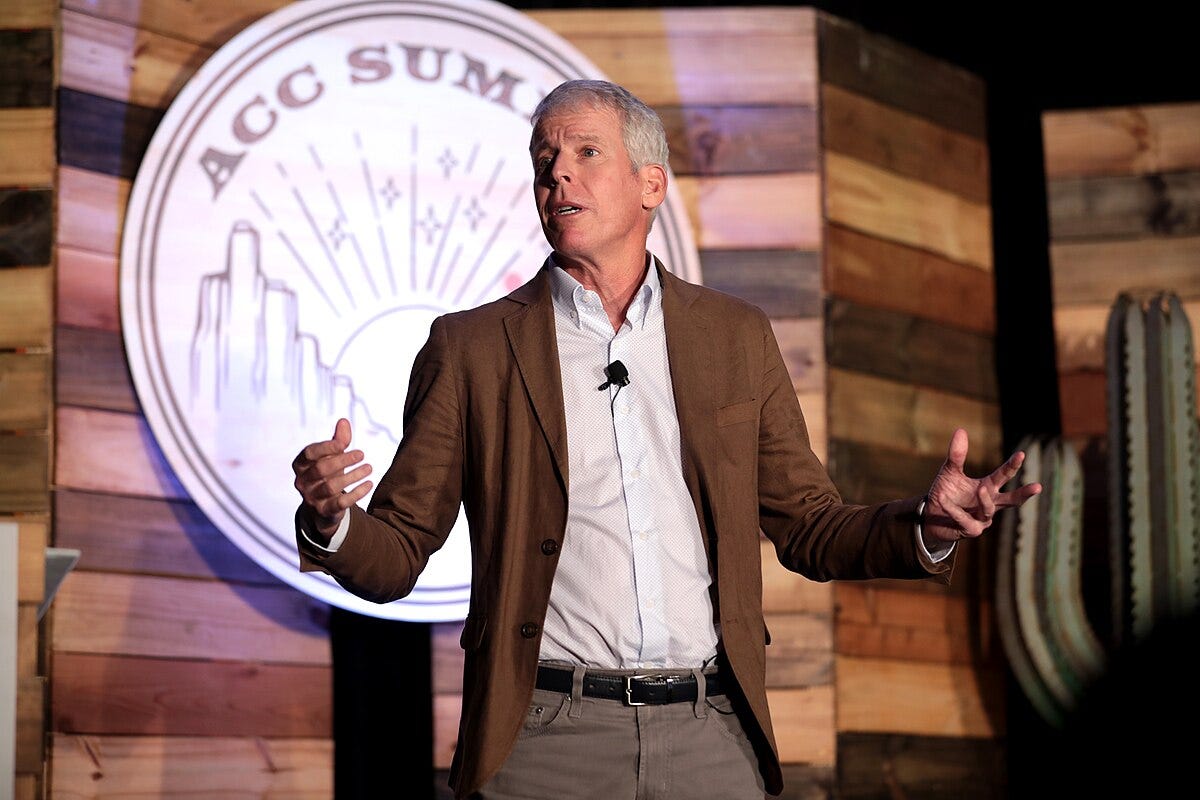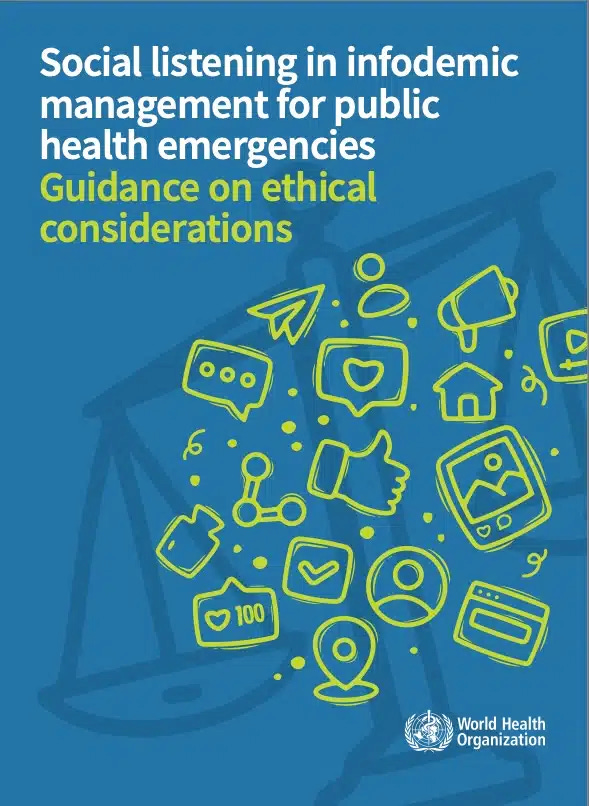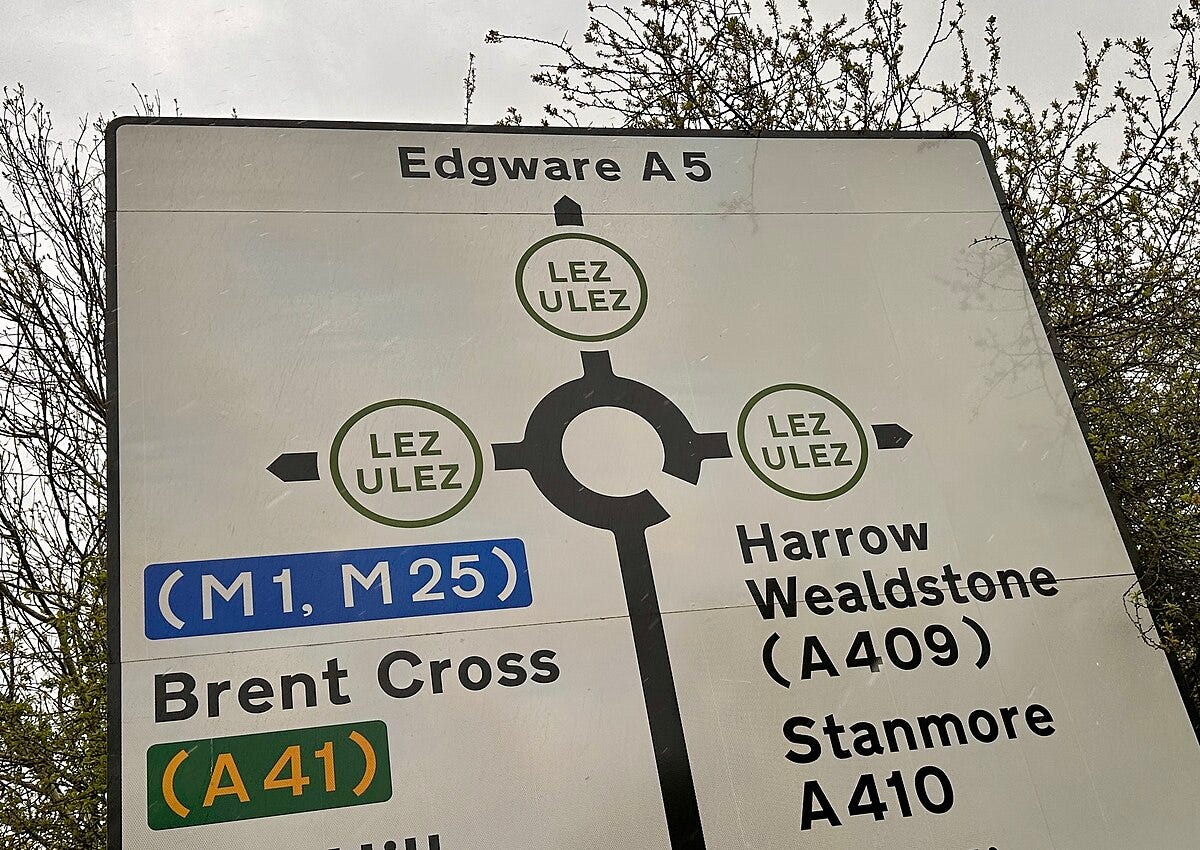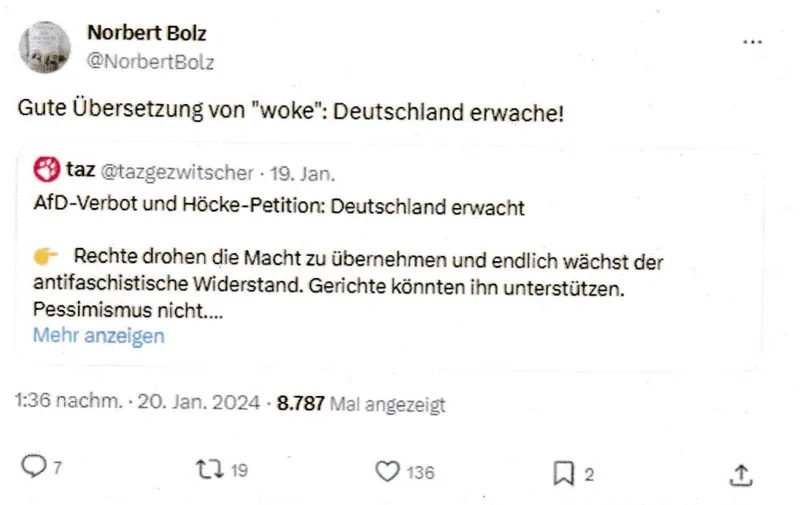News Round-Up: US Pressures Europe on Climate Policy, German Journalist's Home Raided over Tweet, and WHO's AI Surveillance Initiative
Every week, the editorial team of Freedom Research compiles a round-up of news that caught our eye, or what felt like under-reported aspects of news deserving more attention.
Over the past week, the following topics attracted our attention:
US Pressures Europe on Climate Policy
WHO Monitors People’s Conversations on Social Media Using Artificial Intelligence
Berlin Police Raid Journalist’s Home Over Tweet
London ULEZ Has Not Lowered Air Pollution
Another Man Banned from Competing in Women’s Sports
US Pressures Europe on Climate Policy
The Trump administration is ramping up the pressure on the European Union to repeal or overhaul a regulation on corporations’ greenhouse gas emissions, Politico writes.
It comes after the U.S. scored a victory over a proposed United Nations climate fee on shipping. Now the Energy Department joined the government of Qatar in warning the EU that it’s risking higher prices for “critical energy supplies” unless it alters or deletes its Corporate Sustainability Due Diligence Directive. “It is our genuine belief, as allies and friends of the EU, that the CSDDD will cause considerable harm to the EU and its citizens, as it will lead to higher energy and other commodity prices, and have a chilling effect on investment and trade,” the department and the Qataris said in an open letter Wednesday to European heads of state and EU members.

The EU has said it will not scrap its corporate climate directive, though it may dismantle a civil liability provision in a bid to simplify the law. But revising the directive has been a challenge for Europe because lawmakers are divided on how far to roll back sustainability reporting obligations for companies.
The rule, which the EU put into force last year, but still needs to be adopted by member states, would require companies to identify and address adverse human rights and environmental impacts of their actions inside and outside Europe.
Europe’s move to wean itself off Russian energy supplies since Moscow’s invasion of Ukraine in 2022 has forced the continent to increase its reliance on U.S. liquefied natural gas imports. But U.S. gas producers have warned that the climate directive will increase the cost of doing business with customers in the EU.
In the letter, DOE and Qatar said the climate directive “poses a significant risk to the affordability and reliability of critical energy supplies for households and businesses across Europe and an existential threat to the future growth, competitiveness, and resilience of the EU’s industrial economy.”
The governments also advise the EU to repeal the directive or, barring that, rewrite key provisions dealing with the penalties and civil liabilities for companies that don’t comply with the regulation. The U.S. and Qatar also want the Europeans to change the language requiring companies to provide transition plans for climate change mitigation.
WHO Monitors People’s Conversations on Social Media Using Artificial Intelligence
In October, the World Health Organization (WHO) announced that it had thoroughly reorganized its global surveillance network and introduced artificial intelligence (AI) that monitors online conversations and media in real time.
The WHO promotes the Epidemic Intelligence from Open Sources 2.0 (EIOS) system as a tool for detecting health threats and preparing for pandemics. EIOS was created in 2017 and is now used by at least 110 countries and more than 30 organizations and networks around the world. According to the WHO, EIOS—located at the WHO Hub for Pandemic and Epidemic Intelligence—helps to make public health decisions based on open sources. The system analyses publicly available information in near real time and detects potential threats.
The WHO has now updated the system, adding new data sources to version 2.0, such as radio stations, whose broadcasts are automatically transcribed and translated. EIOS 2.0 also allows relevant content to be found on websites, social media, and other public sources, and includes an artificial intelligence feature that automatically analyses data that is said to help better detect disease outbreaks. The WHO offers EIOS free of charge to all eligible users, such as health ministries and agencies, along with training materials and support services.
The WHO has previously published a “social listening” guide that teaches governments, ministries, health agencies, and others to “socially listen,” or listen to and analyse conversations and narratives to understand people’s conversations, feelings, attitudes, knowledge, beliefs, and intentions. In practice, this means that the organization not only collects data on diseases, but also analyzes how citizens think and communicate online.
Critics see EIOS and “social listening” as a threat to digital privacy and freedom of speech. And the plans do not stop there, as the EIOS system collaboration page mentions other projects such as “News Article Credibility Detection” and “Misinformation Classification Systems.” These initiatives point to a growing interest in shaping information categories and filtering information. They also appear to be related to the European Commission’s Joint Research Centre (JRC) 2020 misinformation classifier, which detects “fake news” by analyzing the tone and intensity of language, with an alleged accuracy of 80%. The JRC has announced that these tools are used by the European Commission and Parliament and are shared with fact-checkers.

Critics also see the system as an expanding surveillance network that uses artificial intelligence to interpret social behavior around the world. The system connects national surveillance systems to a WHO-managed network that continuously collects and processes global data. It integrates data analysis and information control into public health infrastructure, allowing algorithms to decide which discussions are “relevant” or “misleading.” Therefore, under the banner of global health security, the WHO is combining artificial intelligence, government cooperation, and social media monitoring.
Berlin Police Raid Journalist’s Home Over Tweet
Berlin police searched the home of journalist, commentator, and media scholar Norbert Bolz over a sarcastic tweet ridiculing the title of a newspaper article, with prosecutors alleging he used a banned Nazi slogan, Remix News reports.
Bolz described the incident as a “joke” that had been grossly misunderstood. Bolz, a 72-year-old former professor of Media Science at Berlin Technical University, told Bild after the house search that “the sad, despotic reality that I have only ever described in recent years has caught up with me. Scary.“ Bolz has been regularly interviewed and quoted as an expert by Bild.
The Berlin public prosecutor’s office launched an investigation accusing Bolz of using symbols of unconstitutional organizations. The charge stems from a post in January in which he wrote, “Good translation of woke: Germany awaken!” The tweet was a play on words referencing an article published in the left-wing newspaper Taz, originally titled “AfD ban and Höcke petition: Germany awakens.” The headline was later changed. Prosecutors argue that “Germany Awake” was a slogan used by the Nazi Party, making its use a potential criminal offense. However, the search warrant reportedly attached little weight to the context.
Bolz rejected any suggestion of intent to promote extremist ideas.
London ULEZ Has Not Lowered Air Pollution
The mayor of London, Sadiq Khan, controversially expanded car restriction zones in London called the Ultra Low Emissions Zone (ULEZ) two years ago, at an estimated cost of up to £155 million (€178 million). ULEZ was intended to reduce vehicle emissions in some of London’s most polluted areas, but the decision to expand it to areas where traffic is less dense two years ago proved controversial. Now scientists at the University of Birmingham can reveal that the expansion of the ULEZ has had no significant impact on lowering air pollution, The Daily Mail reports.
ULEZ applies to all 32 London boroughs, covering over 1,500 square kilometres and around nine million people. The zone pushes right up to the borders of surrounding counties, including Kent, Surrey, Essex, and Hertfordshire. The University of Birmingham study focused on two harmful pollutants called nitrogen dioxide (NO2) and PM2.5, which refers to fine particles with a diameter of 2.5 micrometers or less, invisible to the naked eye. According to the findings, there was a 19.6% reduction in NO2 at roadside sites in central London within three months of ULEZ originally being introduced in 2019. Meanwhile, nitrogen oxides (NOx) – a wider group of toxic gases to which NO2 belongs – fell by 28.8% in the same period for the same area.
However, no significant impact was detected on NO2 or NOx levels following the ULEZ expansion in August 2023. What’s more, PM2.5 pollution across the whole of London has not significantly fallen over the entire period, not just since 2023. NO2 and PM 2.5 (fine particles that can enter our lungs) pollution in London remains well above guidelines from the World Health Organisation (WHO).

So, instead of lowering air pollution, it lays a heavy financial load on drivers, as people still need to drive through the dedicated zones and then pay a hefty fee. Figures released in 2023 showed how the ULEZ expansion generated £5.3 million (€6.1 million) in its first week alone, with millions more raked in from drivers since. Campaigners are now calling for ULEZ to be scrapped altogether as it is saddling ‘Londoners with mountains of debt’.
Another Man Banned from Competing in Women’s Sports
“Transgender” swimmer Ana Caldas has received a five-year ban and was stripped of all competition results between June 2022 and October 2024 by World Aquatics for allegedly refusing to take a gender verification test. The 47-year-old Caldas, who goes by Hannah, explained that he feels it is “not medically necessary” to undergo costly chromosomal testing that is not covered by his insurance — and ultimately accepted the punishment, reports The Daily Mail.
“Chromosomal tests are invasive and expensive procedures,” Caldas said. “My insurance refuses to cover such a test because it is not medically necessary. No US state requires genetic tests for recreational sports events like these. Not even US Masters Swimming, the national governing body for recreational adult swimming in the US, demands this for any of its events,” he added.




liked and shared
Thank you for the update on these topics!
I'll do my best to piss off the WHO with some very suggestive comments on where they can insert their new laws. Such as, "those Nazi British Pricks who love to diddle young children.".
Wait...is that a knock on my door?